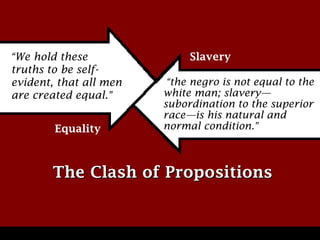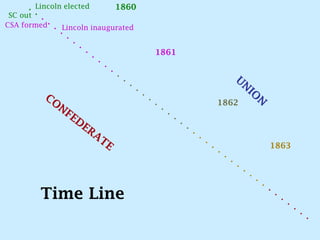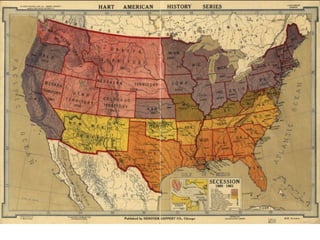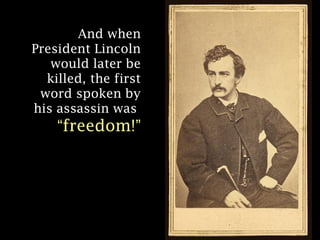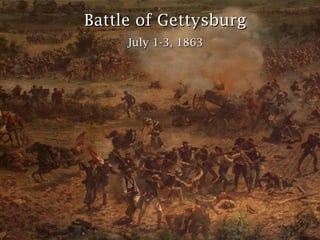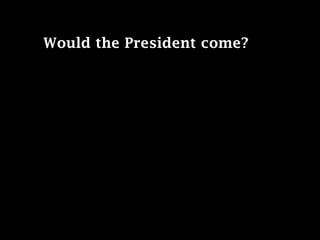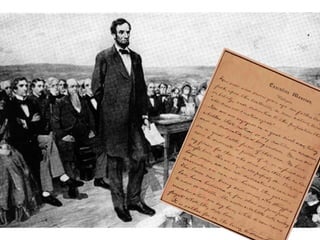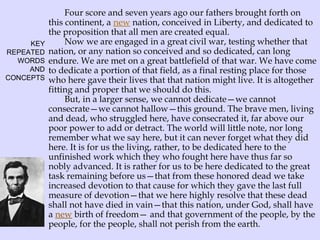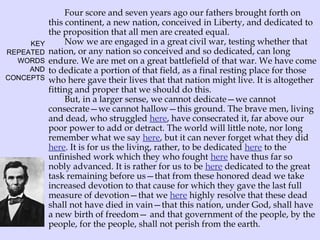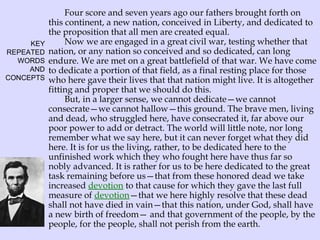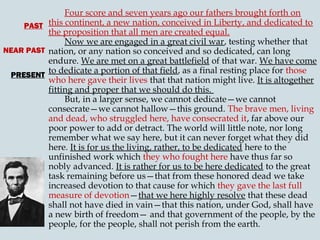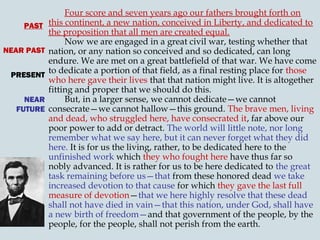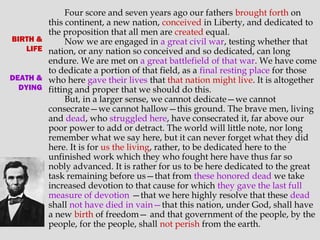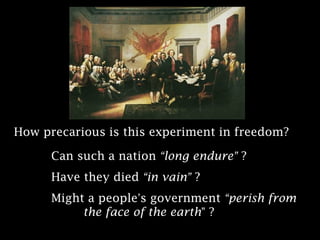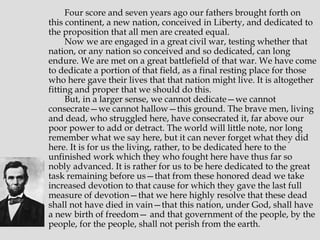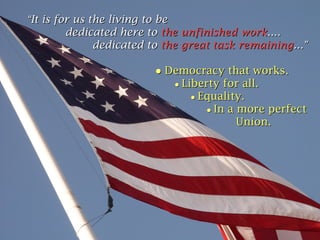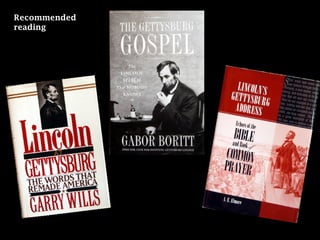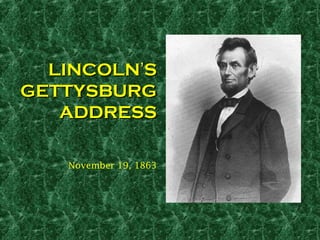The document provides background information on the events leading up to and following the American Civil War, including the rise of slavery as a divisive issue, Lincoln's views against the expansion of slavery, the secession of Southern states and formation of the Confederacy, and key battles of the Civil War. It also describes Lincoln's delivery of the Gettysburg Address at the dedication of the Soldiers' National Cemetery in 1863, where he framed the war as a struggle to determine whether the nation "conceived in Liberty" could long endure and called for a renewed dedication to the principles of equality and democracy.



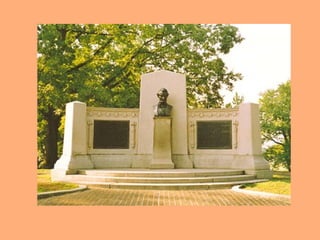


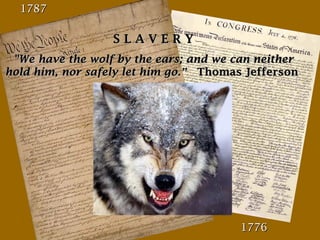

![Lincoln’s 1855 letter to his close friend, Joshua Speed:
“You know I dislike slavery, and you fully admit the
abstract wrong of it. So far there is no cause of
difference. But you say that sooner than yield your legal
right to the slave... you would like to see the Union
dissolved...
I also acknowledge your rights and
my obligations under the Constitution
in regard to your slaves [yet] I confess
I hate to see the poor creatures
hunted down and caught and carried
back to their stripes and unrequited
toil; but I bite my lips and keep
quiet... You ought rather to
appreciate how much the great body
of the Northern people do crucify
their feelings, in order to maintain
their loyalty to the Constitution and
the Union.”](https://image.slidesharecdn.com/the-gettysburg-address-131124163852-phpapp02/85/The-gettysburg-address-9-320.jpg)


![“The new [Confederate]
Constitution has set at rest
for ever all agitating
questions relating to our
peculiar institution—African
slavery as it exists among us
—the proper state of the
negro in our form of
civilization.”
Alexander Stephens
Quit as U.S. Senator,
Became Vice-President,
Confederate States of America
March 21, 1861](https://image.slidesharecdn.com/the-gettysburg-address-131124163852-phpapp02/85/The-gettysburg-address-12-320.jpg)
![PROPOSITION, n. s as z. [L. propositio, from
propositus, propono.]
– In logic, part of an argument in which some quality,
negative or positive, is attributed to a subject.
– In mathematics, a statement in terms of a truth to be
demonstrated.
– In oratory, that which is affirmed as the subject of the
discourse.
Webster’s 19th C. Dictionary](https://image.slidesharecdn.com/the-gettysburg-address-131124163852-phpapp02/85/The-gettysburg-address-13-320.jpg)
